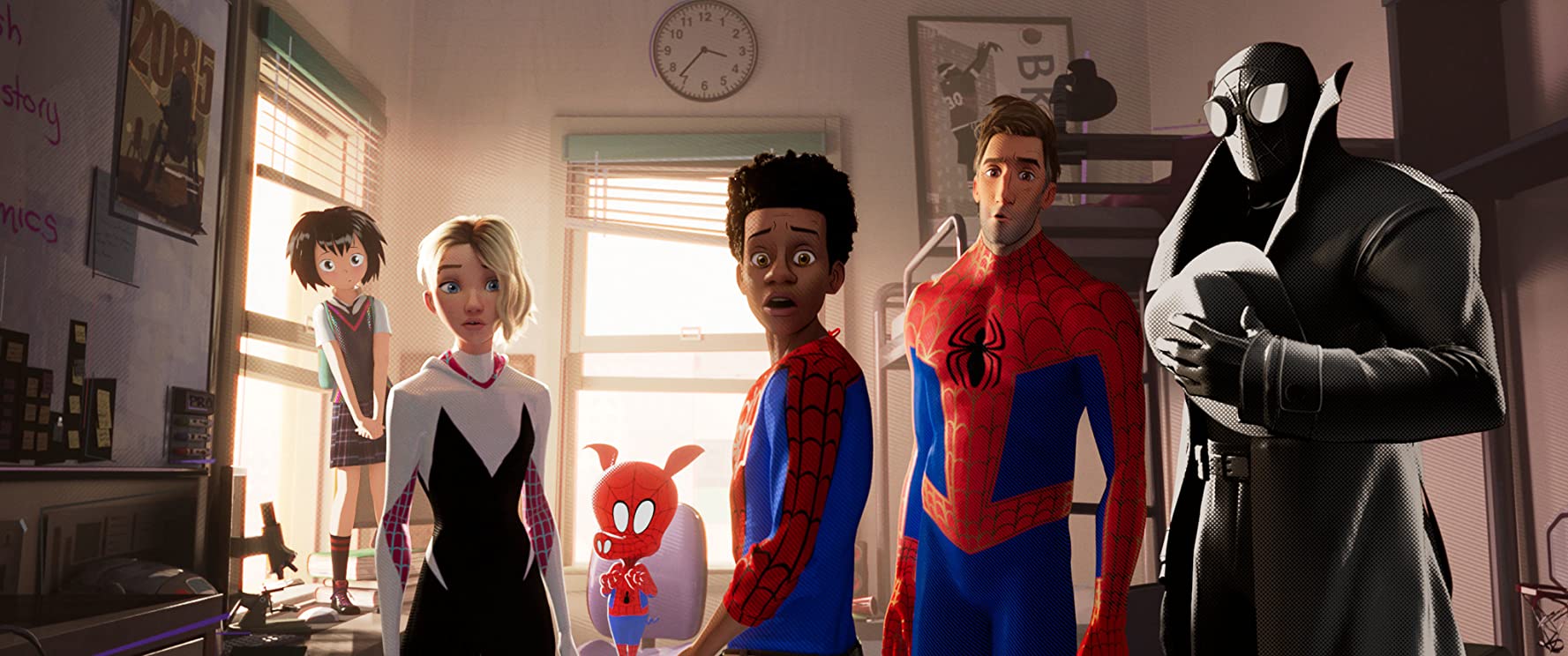“With great power comes great responsibility.” These words from Uncle Ben Parker have resonated with audiences since Spider-Man (2002), the first Spider-Man film. The message has become synonymous with Peter Parker and his journey as your “Friendly Neighborhood Spider-Man.” Spider-Man: Into the Spider-Verse (2018) not only introduces us to a new incarnation of everyone’s favorite wall crawler but also conveys a fresh, new message.
Miles Morales, a young African-American teen, lives in Brooklyn with his two parents. He is the new kid at school, desperate to make new friends and fit in. This all changes one day after a super spider bites him, allowing him to climb on walls and utilize his newly obtained spider-sense. However, after Spider-Man is defeated by the villainous Wilson Fisk, an accelerator brings Spider-Men from other dimensions into Miles’ reality. The clock is ticking and Miles must not only help the Spider-Men return to their proper dimensions but also defeat Fisk.
Much of what makes Spider-Man: Into the Spider-Verse work is the characters. Miles Morales is a character we can identify with; he juggles social insecurities like a normal teen would and is startled when he first discovers his powers. Like Peter Parker before him, Miles allows this generation to easily identify with Spider-Man; he is a kid juggling an ordinary life with the life of a superhero. But if he’s to assume the mantle of Spider-Man, he needs the help of the other Spider-Men: Peter B. Parker spends the most amount of time with Miles and teaches him the ways of Spider-Man. However, this incarnation of Peter Parker is out of shape and depressed in his reality. Seeing Peter this way not only provides the film with some comic relief, but also reminds us how human are favorite heroes can be: they may be loved and adored by millions, but they can also face their own trials. The other Spider-Men: Spider-Gwen, Peni Parker, Spider-Man Noir, and Spider-Hamm are only defined with basic exposition. While they could have used a little bit more development, they may end up with their own spin-off films. The Spider-Men aren’t the only ones subjected to little character development: the villains Wilson Fisk and Doc Ock had shallow motivations. The relationship between Miles and Peter is more the focus, and therefore the most compelling.
The animation, which breathes and moves like a comic book, could also be regarded as a character in the film. It feels less like a film and more like the images of a comic leaping off the page. The film creates a lively New York City without compromising the nuances unique to Miles’ world. The style of animation is refreshing and beautiful, and I hope to see it implemented into future animated films. The film would have not left as big of an impression on me had it decided to use now traditional computer animation techniques.
But what I believe resonates with audiences that view the film is the central theme that anybody can wear the mask. Throughout the film, Miles continues to ask Peter and other mentors what he needs to be Spider-Man, and as he discovers, Spider-Man is a symbol of hope with a big heart and a unique individual personality; a humble yet charismatic hero who will do whatever it takes to protect the innocent. These traits resonate with fans of the wall crawler and continue to make him a favorite across various cinematic incarnations. Spider-Man: Into the Spider-Verse reminds us that what makes you special and unique ultimately makes you a hero; a hero who transcends a reliance on excessive action and quips.


